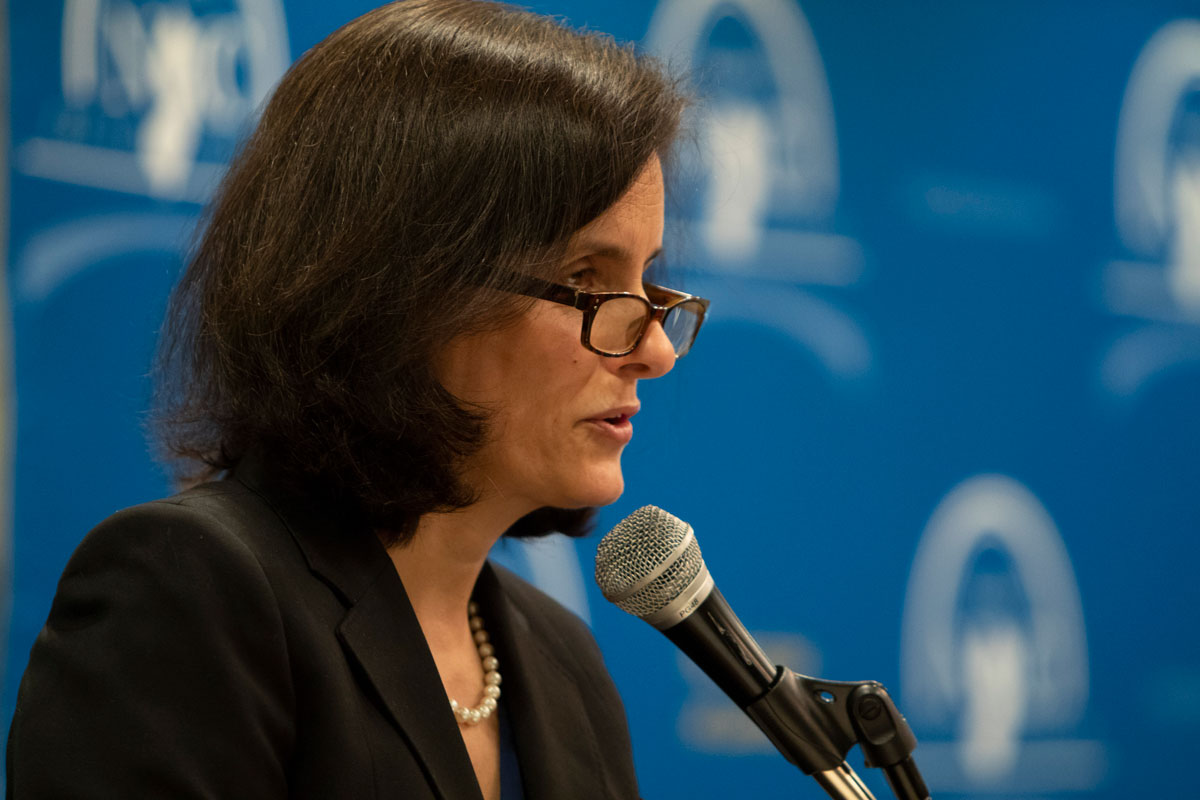State Treasurer to Business Leaders: “Unsustainable Path” for Public Employee Pensions Will Bring Everybody to the Negotiating Table
Gov. Phil Murphy plans to make a record-high $3.2 billion payment to the public employee pension system in the upcoming fiscal year under the state budget he proposed, said state Treasurer Elizabeth Maher Muoio. But she added a caveat - the Murphy administration will seek compromises from the public employee unions when the time comes to renegotiate their labor contracts.
{eventgallery event='72157690322305620' attr=images mode=link max_images=8 thumb_width=50 offset=1 }
The cost of the state’s current pension system and state employee health benefits are on an “unsustainable path,” Muoio told a packed room of business leaders during a breakfast roundtable on April 25 presented jointly by the New Jersey Chamber of Commerce and the New Jersey Business & Industry Association.
“It is definitely a concern and the governor plans on addressing it seriously,” Muoio said. “I don’t think we have a choice.”
The treasurer was asked what she thinks would compel the government employee unions to consider changes.
“We’re on an unsustainable path,” she answered, “and that will bring everybody to the table.”
The comments came as the Legislature considers Murphy’s proposed $37.4 billion budget, which, if passed, would be a $2.7 billion increase in spending over the current year’s budget. The treasurer said that 70 percent of the proposed state budget’s spending increase is attributable to the built-in expenses of debt service, employee pensions and health care.
Much of the budget’s increases in revenue, meanwhile, would come in the form of tax increases, including a slight sales tax increase and an income tax hike on incomes over $1 million.
Raising taxes on income above $1 million to 10.75 percent from 8.97 percent would raise $765 million in revenue, and is a “key component in shoring up the funding to resume investing in our state again,” Muoio said.
“We want to reinvest in schools and infrastructure to make New Jersey a more attractive place to live,” the treasurer added.
She said much of the state’s increases in discretionary spending in the proposed budget would go to improving New Jersey Transit and education. “What has happened at New Jersey Transit shows what happens when investments are not made,” Muoio said.
Further, she said the tax hike on millionaires would be offset by a measure that would reduce property taxes for those with high-taxed homes. That measure would increase the amount of property tax a person could deduct from income each year to $15,000 from the current $10,000. Gov. Murphy also called for increasing the tax credit for poor families, and investing $50 million toward free community college for low-income students.
The governor and the Legislature have until June 30 to adopt a state budget that goes into effect July 1.
Will they adopt a budget by deadline, Muoio was asked. She paused, and then answered with a single word: “Yes.”
{eventgallery event='72157690322305620' attr=images mode=link max_images=8 thumb_width=50 offset=9 }
